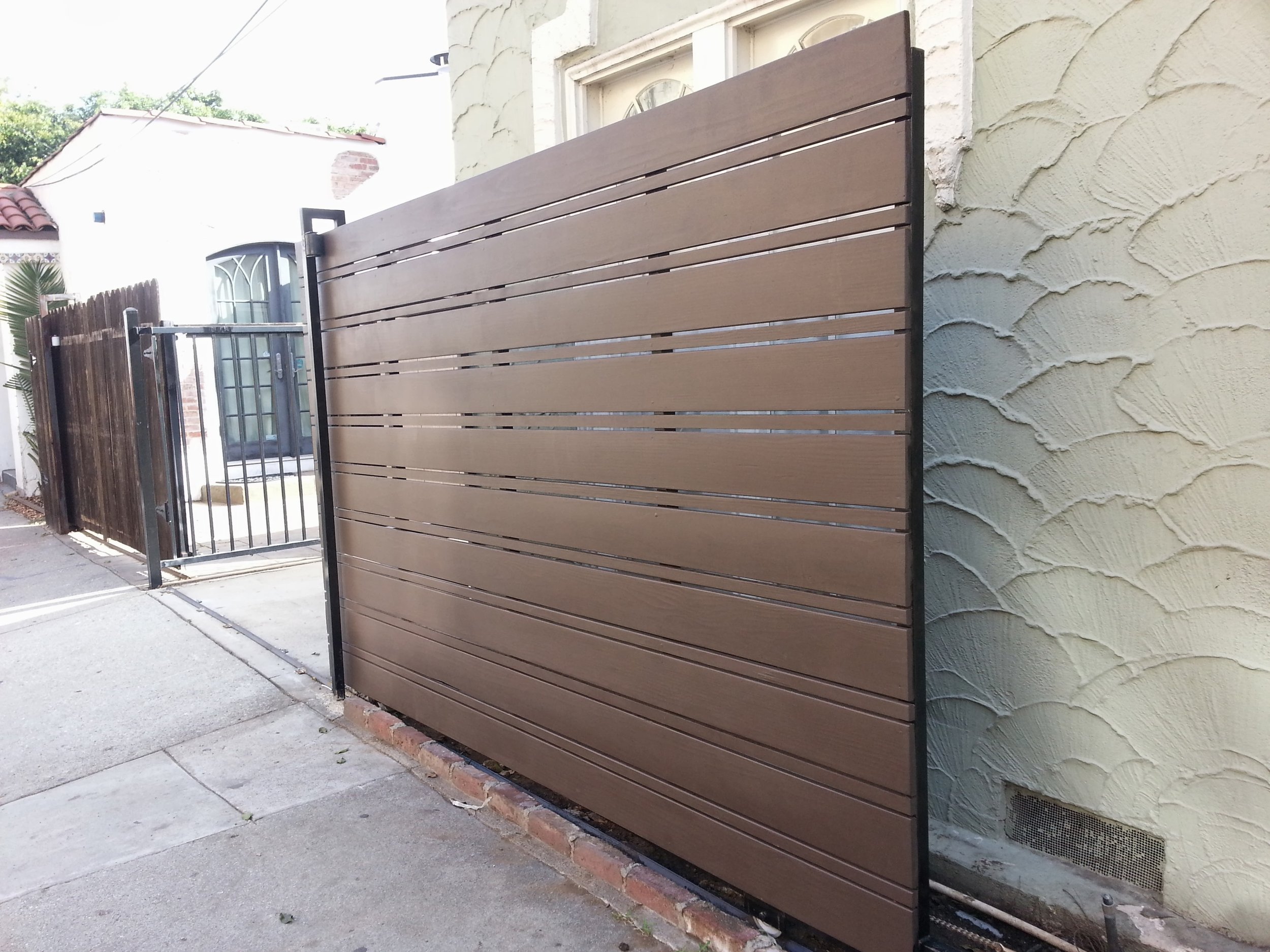When it comes to securing your property, the right gate can make all the difference. Whether you’re considering automatic driveway gates for added convenience or a manual gate for simplicity, both options come with unique benefits and considerations.
Choosing between automatic and manual driveway gates depends on factors like budget, maintenance, security, and ease of access. Here’s a breakdown of the pros and cons of each to help you decide which is the best fit for your home or business.
1. Convenience: How Easy Is It to Use?
Automatic Driveway Gates
One of the biggest advantages of automatic driveway gates is convenience. With a remote, keypad, or smartphone app, you can open and close your gate without having to leave your car. This is especially useful for homeowners with long driveways, frequent visitors, or security concerns.
Pros:
Remote access for easy operation
Ideal for homeowners who prioritize security and convenience
Can be integrated with smart home systems
Cons:
Requires an electric or solar power source
May need occasional maintenance for motors and sensors
Manual Driveway Gates
A manual gate requires you to open and close it by hand. While this can be a cost-effective option, it can also be inconvenient, especially in bad weather or if you frequently enter and exit your property.
Pros:
No need for electricity or motorized parts
Simple operation with minimal maintenance
Lower upfront cost
Cons:
Requires physical effort to open and close
Less convenient for properties with high traffic or long driveways
2. Security: Which Provides Better Protection?
Automatic Driveway Gates
With electronic access controls, automatic driveway gates provide an extra layer of security. Many models include keypads, sensors, cameras, and motion detectors, making it harder for intruders to gain entry.
Pros:
Can be integrated with security systems
Limits access to authorized users only
Helps deter trespassers and unwanted visitors
Cons:
If the power goes out, manual override may be necessary
Some motorized gates can be forced open if not properly installed
Manual Driveway Gates
While manual gates still provide security, they lack the controlled access features of an automatic gate. A strong lock and sturdy material are essential for maintaining security.
Pros:
Can still provide solid security if well-built
No risk of mechanical failure or power outages affecting operation
Cons:
Easier to bypass if left unlocked
No option for remote monitoring or keyless entry
For maximum security, an automatic driveway gate with a keypad or camera system is the best choice.
3. Cost: Which Option Fits Your Budget?
Automatic Driveway Gates
The initial cost of automatic driveway gates is higher due to the motorized system, installation, and additional features like sensors or remote access. However, many homeowners see this as an investment in convenience, security, and property value.
Estimated Costs:
$3,000 - $12,000, depending on materials, automation, and security features
Ongoing costs include maintenance, repairs, and occasional motor replacements
Manual Driveway Gates
Manual gates are generally more affordable upfront since they don’t require automation or electrical components. They’re a great option for homeowners looking for a budget-friendly yet secure solution.
Estimated Costs:
$1,500 - $5,000, depending on size and materials
Minimal ongoing maintenance costs
If budget is a key factor, manual driveway gates are the more cost-effective choice. However, if you’re looking for long-term convenience and security, an automatic gate is worth the investment.
4. Maintenance: Which Requires Less Upkeep?
Automatic Driveway Gates
Because they have moving parts and electrical components, automatic driveway gates require occasional maintenance. This includes checking the motor, lubricating hinges, and ensuring sensors are functioning properly.
Pros:
Regular maintenance keeps them functioning smoothly
Many systems have built-in diagnostics to identify issues early
Cons:
More components mean higher repair costs if something breaks
Power failures can cause temporary malfunctions
Manual Driveway Gates
Since there are no electrical components, manual gates require minimal maintenance. The main concerns are rust prevention (for metal gates) and occasional lubrication of hinges.
Pros:
Less maintenance compared to automatic gates
No risk of electrical failures or motor breakdowns
Cons:
Hinges, locks, and structural elements may still need occasional adjustments
For homeowners who prefer low-maintenance options, manual driveway gates are easier to manage.
Final Thoughts: Which Driveway Gate is Best for You?
Choose an Automatic Driveway Gate If:
You want convenience and prefer remote access
Security is a priority, and you need keypad or camera integration
You’re willing to invest more upfront for long-term ease of use
Choose a Manual Driveway Gate If:
You prefer a budget-friendly option
You don’t mind opening and closing the gate yourself
You want a simple, low-maintenance solution
Both automatic and manual driveway gates have their benefits, and the best choice depends on your budget, security needs, and convenience preferences.
If you’re ready to install a custom driveway gate that fits your lifestyle, we can help. Contact us for a free estimate and expert guidance on choosing the right gate for your home.



